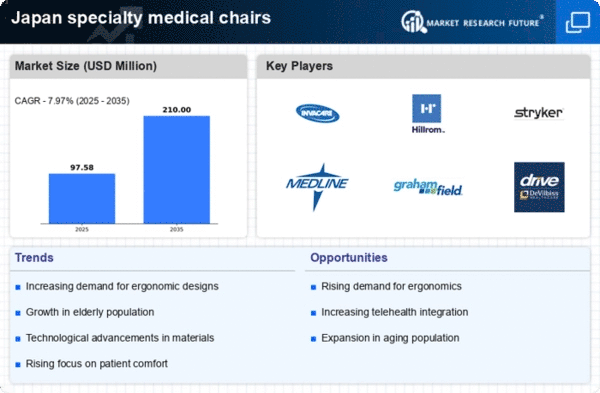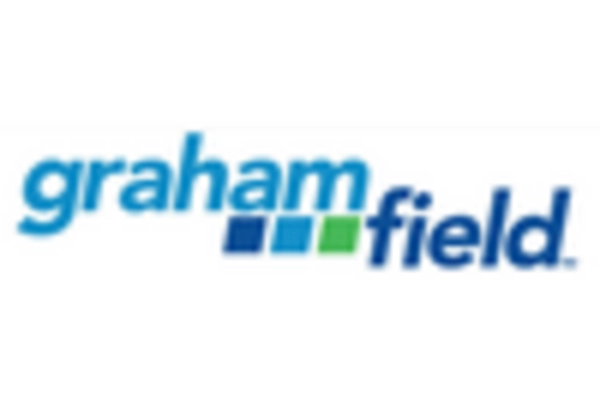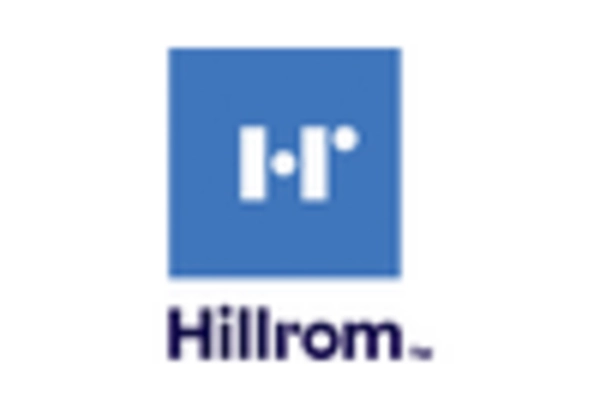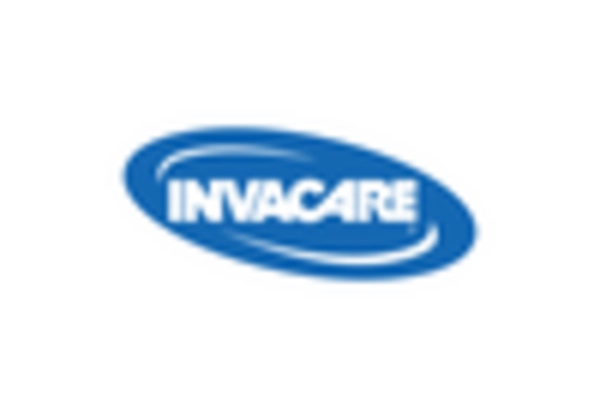The specialty medical-chairs market in Japan is characterized by a competitive landscape that is increasingly shaped by innovation, strategic partnerships, and a focus on enhancing patient care. Key players such as Invacare Corporation (US), Stryker Corporation (US), and Arjo AB (SE) are actively pursuing strategies that emphasize technological advancements and regional expansion. Invacare Corporation (US) has positioned itself as a leader in the market by focusing on product innovation and enhancing user experience, while Stryker Corporation (US) is leveraging its strong R&D capabilities to introduce advanced medical chairs that cater to specific healthcare needs. Arjo AB (SE), on the other hand, is concentrating on sustainability and ergonomic design, which aligns with the growing demand for environmentally friendly healthcare solutions. Collectively, these strategies contribute to a dynamic competitive environment where differentiation is increasingly based on technological prowess and customer-centric solutions.
In terms of business tactics, companies are localizing manufacturing and optimizing supply chains to enhance operational efficiency and reduce costs. The market structure appears moderately fragmented, with several players vying for market share. However, the influence of major companies is significant, as they set benchmarks for quality and innovation that smaller firms often strive to meet. This competitive structure fosters an environment where collaboration and strategic alliances are becoming more prevalent, allowing companies to pool resources and expertise to better serve the market.
In October 2025, Invacare Corporation (US) announced a partnership with a leading Japanese healthcare provider to co-develop a new line of specialty medical chairs tailored for the local market. This strategic move is likely to enhance Invacare's market penetration and strengthen its position in Japan by aligning its products with the specific needs of Japanese healthcare facilities. Such collaborations may also facilitate knowledge transfer and innovation, further solidifying Invacare's competitive edge.
In September 2025, Stryker Corporation (US) launched a new digital platform designed to streamline the ordering and maintenance of its specialty medical chairs. This initiative not only enhances customer experience but also positions Stryker as a forward-thinking player in the market, emphasizing the importance of digital transformation in healthcare. By integrating technology into its operations, Stryker is likely to improve efficiency and customer satisfaction, which are critical in a competitive landscape.
In August 2025, Arjo AB (SE) unveiled a new eco-friendly medical chair that utilizes sustainable materials and energy-efficient manufacturing processes. This launch reflects a growing trend towards sustainability in the healthcare sector, appealing to environmentally conscious consumers and institutions. Arjo's commitment to sustainability may provide a competitive advantage as healthcare providers increasingly prioritize eco-friendly solutions in their procurement processes.
As of November 2025, the competitive trends in the specialty medical-chairs market are heavily influenced by digitalization, sustainability, and the integration of artificial intelligence (AI) into product offerings. Strategic alliances are shaping the landscape, enabling companies to enhance their technological capabilities and market reach. The shift from price-based competition to a focus on innovation, technology, and supply chain reliability is evident, suggesting that future competitive differentiation will hinge on the ability to deliver advanced, user-friendly solutions that meet the evolving demands of the healthcare sector.

















